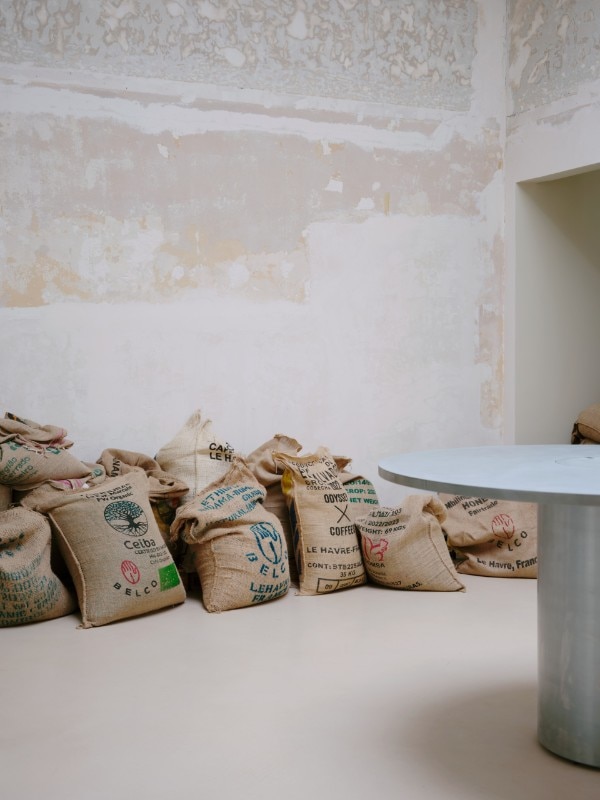In Pantin, inner Parisian banlieue, the Mexican-Italian firm OAR/Office Abrami Rojas has created a boutique-laboratory for Anbassa, the high-quality coffee importer that has been working for years to promote the culture of this "ritual" beverage in all its phases, from the transport of the beans in jute sacks to tasting, through codified and traceable processes.
The intervention involves the renovation of a 1935 Art Deco building designed by architect René Tanalias, now tightly embedded in the urban fabric.

A fluid succession of double-height spaces arranges the three functional areas (the roast laboratory enclosed by glass walls, the sales area, and the tasting area), visually and functionally interconnected to underline the company’s policy of transparency. In correspondence with each room, a sequence of scenographic reinforced concrete and glass domes – with an elliptical, square, and circular design – previously concealed underneath insulating panels and now re-unveiled by the studio, enhances the solemn character of the space, almost a “temple of coffee” flooded by a generous light from above.
The project establishes a dialogue with the former building through minimal and sensitive gestures that leave wide room to the material textures and imperfections of the original shell, valorize the historical stratification and renounce any attempt to make the contemporary intervention prevail.

The exposed reinforced concrete structures and technical systems, as well as the irregularly textured walls that reveal the patina of time, emphasise the materic and essential character of the spaces, also accentuated by the minimalist language of the furnishings and finishings in a vibrant play of contrasts: from the massive fixed furniture covered in terracotta, including the tasting counter with a selection of fine coffees, to the slender steel elements of custom-made furniture, tables, seats and display shelves.

FADE Family is the new approach to outdoor living
The latest addition to the PLUST Collection is a line of furniture inspired by the texture of white stone, which illuminates as evening falls.






















